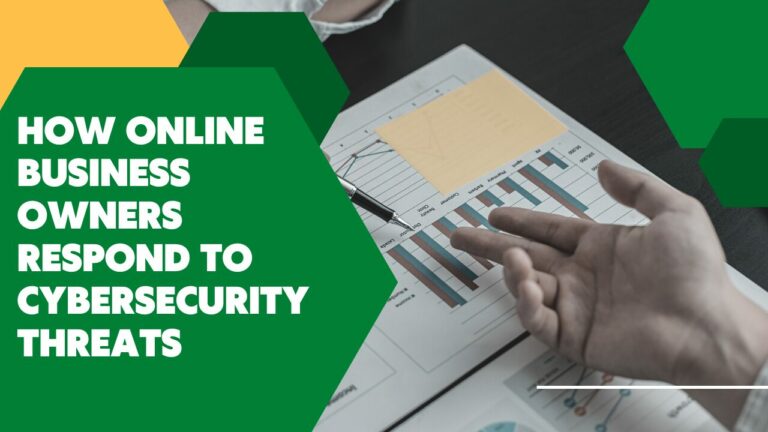Trucking Companies Huge Target For Ransomware Attacks
The transportation industry is currently one of the most cyber-attacked industries in the US, which puts trucking companies in the crosshairs of cybercriminals. In the last few years, the trucking industry has experienced an uptick in cyber-attacks – with ransomware and social engineering being the most prevalent forms of attack.
Just recently, a Minnesota trucking and logistics company – Bay & Bay, was targeted by the Conti ransomware group. The hackers who were intent on extorting the carrier deployed malware to encrypt data on the company’s system. A few months back, trucking company Forward Air revealed that it became a victim of a ransomware incident that cost it $7.5 million.
So why is the trucking industry a ripe ransomware target? And what measures can trucking companies take to avoid becoming ransomware attack victims? Continue reading to find out.

Why Are Trucking Companies Targeted by Ransomware Attacks?
Here is an outline of some of the reasons why cybercriminals target the trucking industry:
1. The Trucking Business Generates High Dollar Revenues
Trucking isn’t a high-margin business but rather a high-dollar one. This means that firms have access to credit and significantly large amounts of cash, and they are used to settling pretty huge bills. Suppose an attacker successfully executes a ransomware attack against a trucking company. In that case, there are high chances that they will receive a higher payment than they would have if they had targeted lower dollar industries. Cybercriminals view trucking companies as easy targets from whom they can gain maximum returns for their efforts.
2. Trucking Companies Typically Have Weak IT Management and Policies
Most often than not, small and medium-sized fleets have a single IT guy who is tasked with keeping the network running, maintaining the website, taking care of desktop support, and handling security. There are instances where these individuals are also tasked with doing light development work as well.
These are very different tasks that require different skills to accomplish efficiently. When a single person takes on all these responsibilities, the chances are that they will make compromises. Even if your IT person is diligent and makes an effort to create a secure environment, something will fall through the cracks and make your company vulnerable to ransomware attacks.
3. Trucking Companies Traditionally Don’t Invest Sufficiently in Training Their Staff on Cybersecurity Best Practices
This is probably the biggest issue that makes these companies huge ransomware attack targets. Hackers primarily target people (they need someone to open a link in a phishing message to initiate their attack). Failure to regularly train your staff on cybersecurity best practices opens the door for cybercriminals to attack your business.
4. Most Trucking Companies Don’t Invest in Modern Equipment
When we talk about equipment, we are not referring to trucks in this context. Instead, we are talking about computer hardware, software, and network gear. It is not unheard of to find trucking companies running older versions of Windows that are not up-to-date with the latest security patches. These companies also don’t invest in security solutions such as firewalls. This leaves security loopholes that cybercriminals can exploit.
5. Trucking Firms Are Typically Centralized and Local
This seems odd given that the whole point of trucking companies is to have people across the country delivering freight. Even so, the non-driving staff is usually concentrated in terminals where everyone is connected to a local network.
Given trucking companies’ history with on-site dispatch management systems, all files are typically stored on the local network and can be accessed by everyone in the office. While there may be some permission management that prevents people from accessing unauthorized data, when a company has a general-purpose IT guy in charge of all IT infrastructure, there is a likelihood that there will be gaps in those permissions.
6. Trucking Companies Aren’t Focused on Cyber Security
Fleets are usually more concerned about road safety and dedicate considerable resources to preventing such problems. In most cases, trucking companies fail to devote a similar amount of resources toward cybersecurity. This makes the risk of attack more significant.
Most successful cyberattacks are characterized by cybercriminals spending several months exploring a company’s files and documents before finally pulling the trigger on the attack. As such, if a company doesn’t have personnel tasked with monitoring company networks and spotting signs of intrusion, it is less likely that a breach will be detected in time.
How Trucking Companies Can Address the Ransomware Problem
Here are some tips that trucking companies can use to thwart ransomware attacks:
1. Educate Your Employees on Cybersecurity Best Practices
Your employees are your first line of defense to combat ransomware threats and can actively help stop such attacks from infiltrating your company. A robust security program paired with employee training on ransomware warning signs, safety practices, and how to respond to a potential attack can help you create a human firewall that will ensure that your business doesn’t fall victim to a ransomware attack.
2. Employ Data Backup and Recovery Plans for All Vital Information
While you may invest heavily in cybersecurity, that doesn’t guarantee that your company won’t become a victim of an attack, especially since cybercriminals are continuously developing more sophisticated attack techniques. That said, backups are essential for reducing the impact of a potential ransomware attack. Store your data on different devices or in the cloud to easily access it in case of a ransomware attack.
3. Update All Your Business Devices
Ensure that anti-malware and antivirus solutions are set to update automatically and conduct regular scans so that your operating systems are operating efficiently.
4. Manage Use of Privileged Accounts
Ensure that you restrict the user’s ability to install and run software applications on your company’s network. This will limit your network’s exposure to malware.
5. Exercise Caution When Opening Email Links
Suppose a pop-up message or an email has a link; it’s advisable not to click on them unless you’re sure that they are legitimate. Exercise caution when downloading files or opening an attachment from the emails you receive, regardless of who the sender is. These files could contain malware designed to corrupt your network’s security.
Alliance Technology Partners Provide Premier IT Support Services for St. Louis and Grand Rapids Businesses
Are you looking for an IT support provider for your St. Louis trucking company? Alliance Technology Partners are your go-to providers. We offer a wide range of IT services, including cybersecurity IT management, business continuity, cloud services, data backup, VoIP services, and strategic IT consulting. Contact us today to get all the IT support that your company needs.


